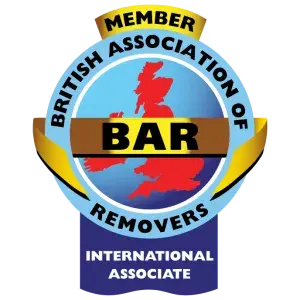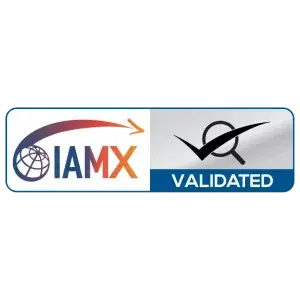International pet relocation is becoming increasingly popular as people move to different countries for work or personal reasons. Pets are considered an important part of the family and pet owners want to ensure their furry friends are safe and comfortable during the relocation process. However, relocating pets to another country can be a daunting task and requires careful planning and preparation to ensure a smooth and stress-free experience. This article aims to provide a comprehensive guide on international pet relocation, including factors to consider, planning for relocation, pet travel arrangements, arrival and quarantine procedures, and the cost of pet relocation. We will also highlight the services provided by relocation companies like ISS Relocations and their role in ensuring a successful pet relocation experience.
Part 1: Understanding International Pet Relocation
When relocating pets internationally, there are several factors to consider. Firstly, pet owners must research and familiarize themselves with the destination country’s regulations on pet importation. These regulations may vary from country to country and can include requirements for pet vaccinations, health certificates, and quarantine periods. For example, some countries require pets to be vaccinated against specific diseases or undergo a quarantine period upon arrival. It is important to ensure that all the necessary documentation and requirements are met before relocating a pet to another country.
Additionally, pet owners must also consider the transportation method for their pets. While air travel is the most common method of transportation for pets, there are also other options such as ground transportation. The mode of transportation chosen may depend on factors such as the pet’s size, breed, and health status. Pet owners must also ensure that the airline or transportation company is pet-friendly and has policies in place to ensure the safety and comfort of pets during transit.
It is also advisable to work with a pet relocation specialist who can provide guidance and assistance throughout the relocation process. These specialists can help with obtaining necessary documentation, choosing the right transportation method, and ensuring compliance with destination country regulations.
Part 2: Planning for International Pet Relocation
Planning ahead is crucial when relocating pets internationally. The planning process should begin several months before the actual relocation date to allow for sufficient time to complete all necessary requirements. Pet owners must obtain all the necessary documentation such as health certificates, vaccination records, and travel permits. It is important to research the specific requirements for the destination country and ensure that all the necessary paperwork is in order.
Pet owners must also make travel arrangements for their pets. This includes booking flights or ground transportation, as well as securing pet-friendly accommodation at the destination. When booking flights, pet owners must consider the airline’s pet policy and ensure that their pets will be comfortable and safe during transit. It is also important to familiarize pets with their travel crates to minimize stress during the journey.
Part 3: Pet Travel Arrangements
As previously mentioned, air travel is the most common mode of transportation for pets during international relocation. However, pet owners must carefully consider the factors involved in air travel and choose an airline that is pet-friendly and has policies in place to ensure the safety and comfort of pets during transit. Pet owners must also ensure that their pets meet the airline’s requirements for travel, such as being in good health and having the necessary documentation.
It is also important to consider the pet’s size and breed when choosing a travel crate. The crate should be large enough for the pet to stand up and turn around comfortably, and should also be well-ventilated and secure. Pet owners should also familiarize their pets with the travel crate before the journey to minimize stress.
Part 4: Arrival and Quarantine
Upon arrival at the destination country, pets may be subject to quarantine procedures depending on the country’s regulations. Quarantine periods can vary from a few days to several months and may be required to ensure that the pets are free from diseases and meet the country’s health requirements. The duration of quarantine can also depend on the health status of the pet, its vaccination history, and whether it has been microchipped.
It is crucial to comply with the quarantine requirements of the destination country to ensure the safe and healthy arrival of the pet. Failure to comply with these regulations may result in the pet being denied entry or being returned to its country of origin. This can be a stressful and costly experience for both the pet and the owner.
During the quarantine period, the pet will be housed in a facility designated by the destination country’s authorities. These facilities are specially designed to ensure the health and safety of the pets and to prevent the spread of diseases. Owners may be allowed to visit their pets during this period, but this will depend on the country’s regulations.
Once the quarantine period is over, owners will need to obtain the necessary documentation to release their pets from quarantine. This may include a health certificate and proof of vaccinations. It is important to work closely with the pet relocation specialist to ensure that all requirements are met, and the necessary documentation is obtained to avoid any delays in the release of the pet.
Upon release from quarantine, pets may experience stress and anxiety due to the change in environment and routine. It is important to provide a comfortable and safe space for the pet and to take measures to minimize stress. These may include gradually introducing the pet to its new environment, providing familiar toys and bedding, and maintaining a routine similar to the one the pet had before the relocation.
Part 5: Cost of International Pet Relocation
The cost of international pet relocation can vary depending on several factors, such as the destination country, mode of transportation, and additional services required. The cost can range from a few hundred dollars to several thousand dollars, depending on the complexity of the relocation.
One of the significant expenses when relocating a pet internationally is the cost of air travel. The cost will depend on several factors, such as the pet’s size, breed, and health status, and the airline’s policies on pet travel. Pet-friendly airlines may charge a premium for pet travel, and the cost can also depend on the distance of the flight.
Additional expenses may include veterinary fees for vaccinations and health checks, customs clearance fees, and quarantine fees. It is crucial to obtain a detailed breakdown of costs from the relocation company to understand what is included and what is not.
Relocation companies like ISS Relocations can provide an estimate of the total cost of relocation based on the pet’s specific needs and requirements. They can also provide guidance on cost-saving measures and payment options.
Conclusion
In conclusion, international pet relocation requires careful planning and preparation to ensure a safe and stress-free experience for both the pet and the owner. Understanding the destination country’s regulations on pet importation, planning ahead, and working with a pet relocation specialist are essential to ensure a successful relocation.
The mode of transportation, arrival and quarantine procedures, and cost of relocation are also important factors to consider when relocating a pet internationally. Pet owners should be prepared for the expenses associated with relocation and obtain a detailed breakdown of costs from the relocation company. Relocation companies like ISS Relocations can provide guidance and assistance throughout the relocation process, ensuring that pets are relocated safely and efficiently. With proper planning and preparation, international pet relocation can be a positive experience for both the pet and the owner.
















